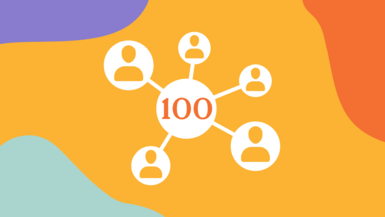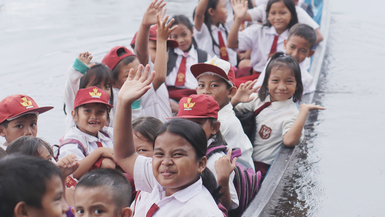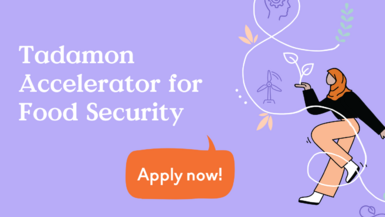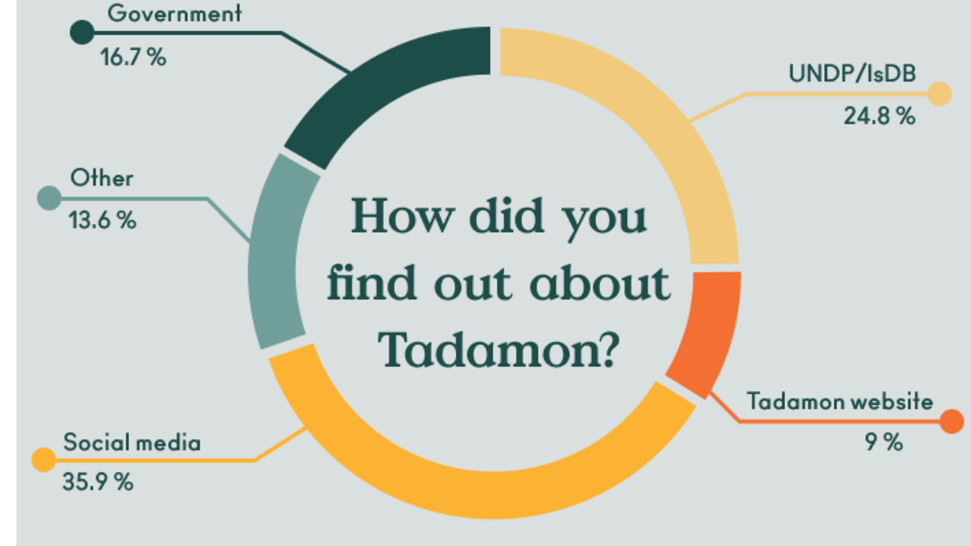
After one year of collaboration with the Islamic Development Bank (IsDB) on supporting non-governmental organizations (NGOs) and other civil society organizations (CSOs) in 57 OIC Member Countries, we’ve mapped and surveyed the civil society landscape across OIC Member Countries – to better understand and get to know the people and organizations at the forefront of grass-roots development, especially during the pandemic times.
Since we began, over 1000 CSOs have voluntarily signed-up to our Tadamon platform to receive support from IsDB, UNDP and other partners (through grants and capacity building), to gain more visibility, new partners and join forces to re-develop a strong ecosystem to empower CSOs.
Instead of relying on existing databases and directories, we decided to focus on crowdsourcing, so we designed an approach to specifically have CSOs come to us. We wanted to identify the most active organizations that would benefit from our program and activities, and by having CSOs sign up on the Tadamon platform gave us the opportunity to survey and collect information on a set of key variables.
To cast the net as wide as possible, we allowed for a broad range of actors to apply with a limited set of basic criteria, followed by a rigorous verification by both UNDP, IsDB and relevant governments. For organizations to be able to sign-up on Tadamon and thus be included in the database, they needed to meet four basic criteria:
Officially registered in their respective member countries;
- Do not have any political affiliations;
- Within the geographical scope of IsDB member countries,
- Their field of activities align with our main thematic areas (poverty reduction, working in development, and supporting SDGs
After signing up and passing our 3-step verification process, organizations gain access to participate in our activities: apply for national Crowdfunding Academies and other forthcoming capacity building programs; and are eligible for grants provided by IsDB. During the sign-up process, we ask a set of questions via a sign-up form that allows us to search and categorize CSOs according to a number of indicators ranging from activities, size, location, SDGs to the quality of their internet connection (to name just a few).
Most of the CSOs that have currently joined are based in our seven pilot countries where we first started our work: Indonesia, Kazakhstan, Lebanon, Morocco, Somalia, Tunisia, and Turkey.
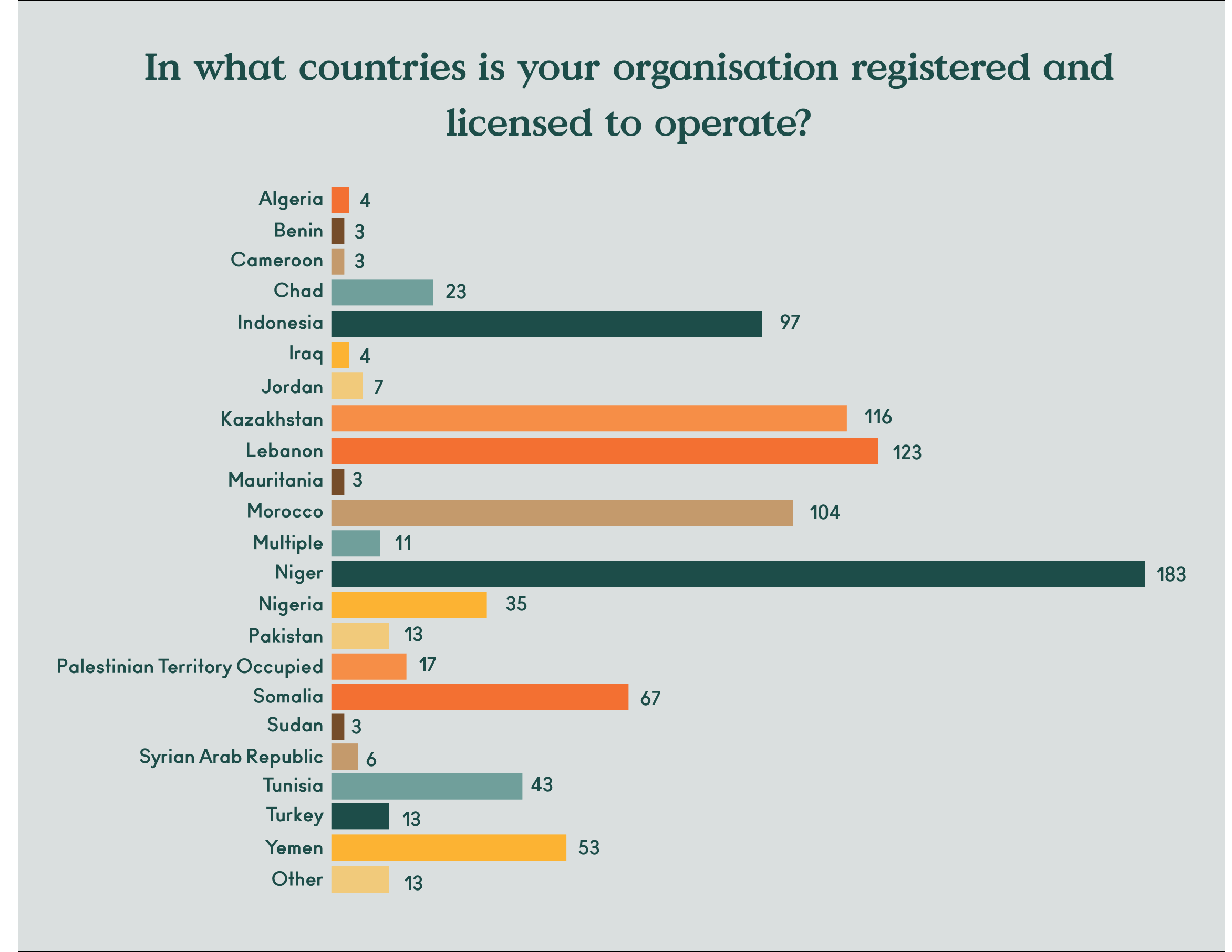
The outreach campaign aimed at raising awareness about the program among CSOs and was mostly focused within these seven countries. Organizations were also invited to spread the word and invite their respective networks beyond these countries.
The majority of CSOs categorized themselves as non-profits (72%) and community-based organizations (CBOs) (12.5%). Cooperatives or farmers’ associations, CSO networks, philanthropies, and think tanks constituted a minority.
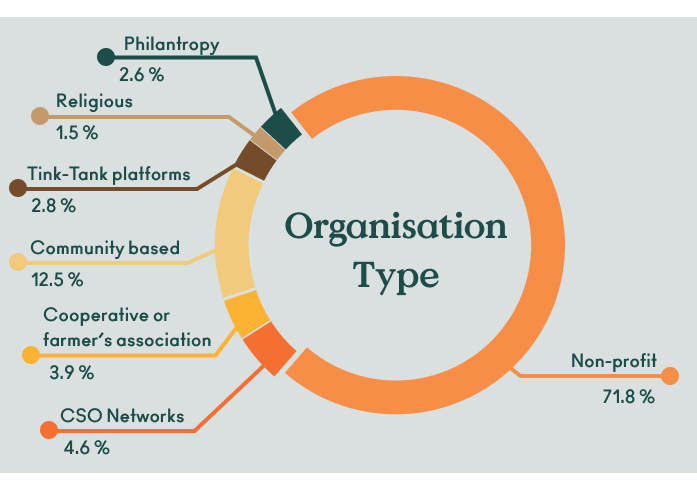
Among the CSOs that identified themselves as non-profits, small and medium-sized organizations dominated the landscape. 70% of the CSOs reported annual budgets of below $100,000 USD with over 38% of the total having a budget less than $ 25,000 USD (non-profits often operate with small budgets and their staff is usually comprised of volunteers rather than paid professionals).
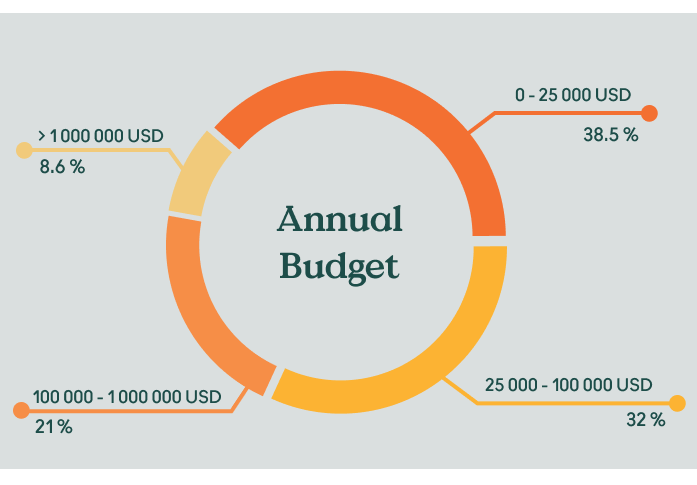
The small scale and focused activities are also reflected in the geographical reach as well as the types of activities most CSOs focus on. For example, the majority of organizations work on a local or national level on issues such as education, youth and women's empowerment, poverty alleviation and health.
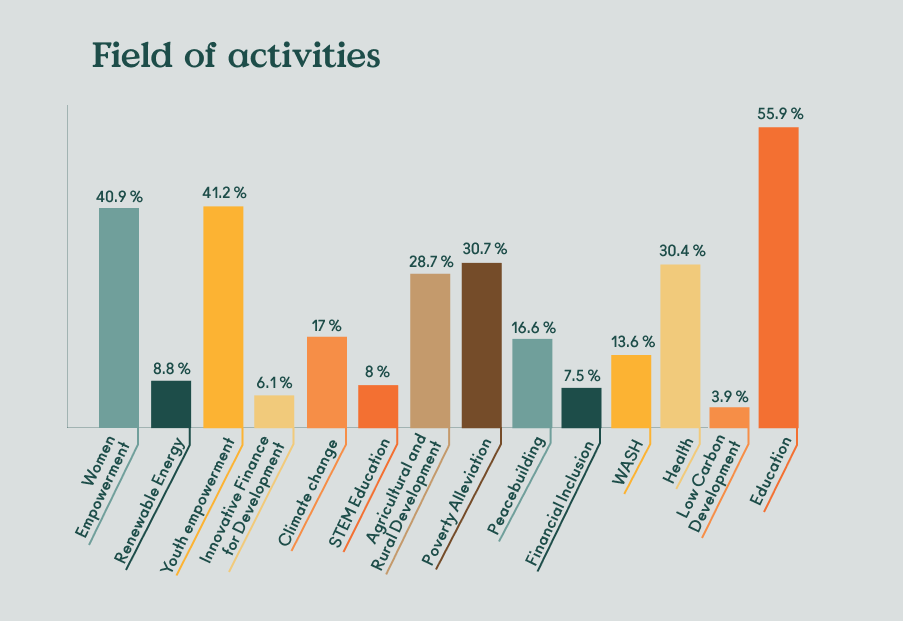
Similarly, when asking “Which SDGs would best describe the work of your organization” the most popular SDGs were: 1. No Poverty; 4. Quality Education; 3. Good Health & Well Being; and 5. Gender Equality, with an average of 50% of organizations reporting these as their priority goals.
We found that most organizations that applied to the platform are new to UNDP and IsDB alike. An overwhelming majority of CSOs (83%) have not received previous funding from either UNDP or IsDB. This means that it is the first time and a new opportunity for them to engage with us. As a bulk of the empowerment activities are focused on alternative finance and networking with other organizations, most applicants also stated these as their main reasons for joining.
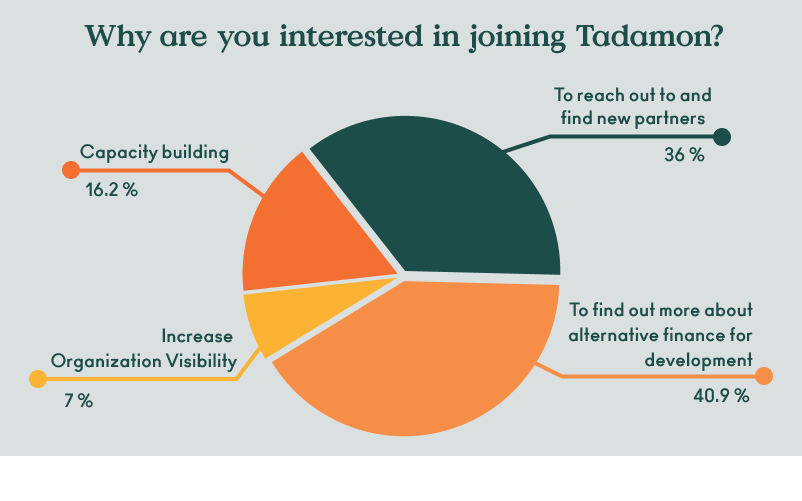 The motivation for CSOs to find new funding opportunities is also reflected in the overwhelming interest in our Crowdfunding Academies. To date we have organized a call for proposals in four countries and received nearly 250 applications. When we polled CSOs on the Tadamon platform on crowdfunding, we found that a substantial number already had experience, which demonstrates that this is already a popular tool among CSOs. However, the majority of organizations that have joined have no prior experience and see the platform and activities as a gateway to the world of crowdfunding.
The motivation for CSOs to find new funding opportunities is also reflected in the overwhelming interest in our Crowdfunding Academies. To date we have organized a call for proposals in four countries and received nearly 250 applications. When we polled CSOs on the Tadamon platform on crowdfunding, we found that a substantial number already had experience, which demonstrates that this is already a popular tool among CSOs. However, the majority of organizations that have joined have no prior experience and see the platform and activities as a gateway to the world of crowdfunding.
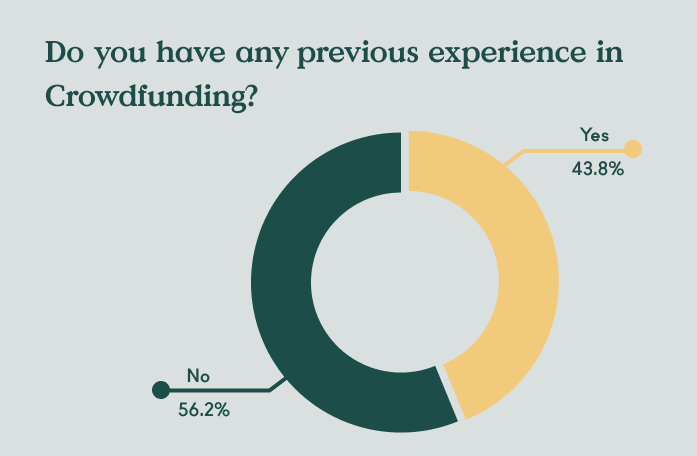
What's next?
Following the success we’ve had in our seven pilot countries, we are aiming to step up our efforts and take our CSO mapping efforts to the next level in 14 new countries this year. Additionally, Crowdfunding Academies will be organized in seven new countries and we are expecting to launch our Tadamon Pandemic Accelerator soon for innovative CSOs working in response to the COVID-19 pandemic. Our aim is to double the numbers of CSOs registered on our platform by the end of 2021, bringing an additional 2000 CSOs into our mapping database as well as to diversifying and improving the collected information.
The strength of our outreach campaign is also reflected in the means by which CSOs in OIC member countries have found out about Tadamon, with social media being the most effective tool for building awareness about the program.
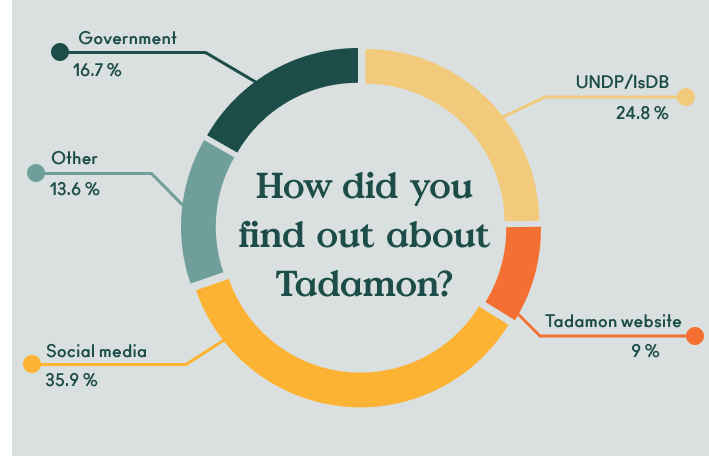
This has encouraged us to step up our efforts in creating a more interactive social media and online presence and promoting our member organizations by sharing their voices on our platform. This database can be used both by project partners, the CSOs themselves as well as donors to find like-minded organizations to partner up with or find projects to support. It also gives us a valuable window into the civil society landscapes and ecosystems of each country we work with to better understand the needs and resources on the ground.
We are continuously working to update the Tadamon platform with new campaigns from organizations graduating from our Crowdfunding Academies, capacity building opportunities, calls for grants, and success stories from the project. We will continue to publish our findings online so stay tuned and sign up for our newsletter at tadamon.community.
Blogpost by:
Ben Thompson Coon, Mapping and Outreach Expert in UNDP Istanbul Regional Hub
Chidolisa Manuwa, Burcu Mavis, Stephania Zerdar - Research and Communication Interns in UNDP Istanbul Regional Hub
